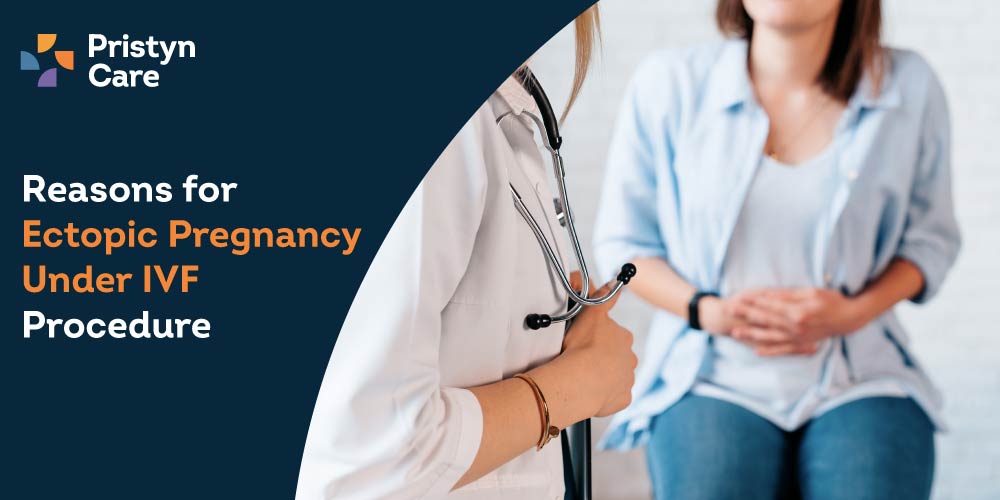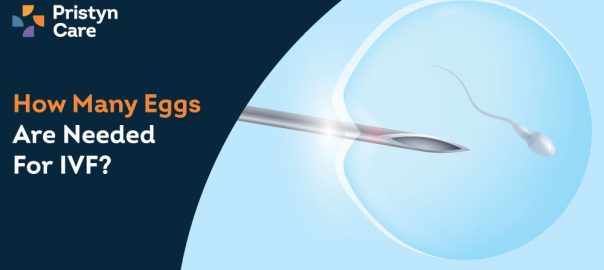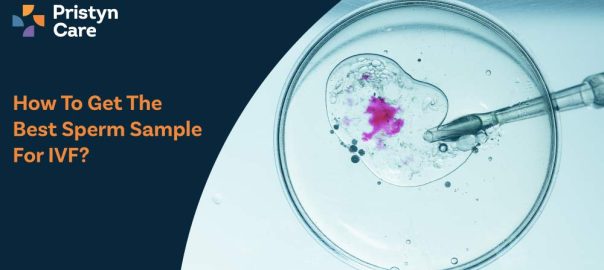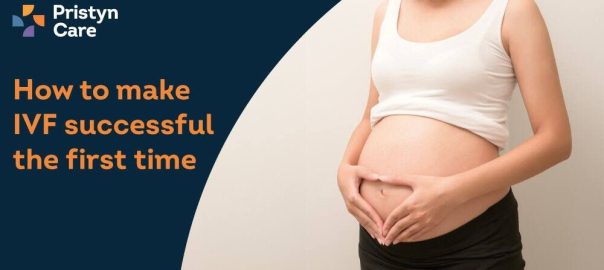![]() Views: 188
Views: 188
Reasons for Ectopic Pregnancy Under IVF Procedure
Dedicated Support at Every Step!
Our Doctors are available 24 hours a day, 7 days a week to help you!
Call Us0806-541-7961While IVF is a highly controlled process aimed at improving fertility outcomes, certain factors can still lead to this complication. Understanding the reasons behind ectopic pregnancies in IVF can help patients make informed decisions and take necessary precautions during their treatment journey.
In this blog, we will talk about the key causes of ectopic pregnancy during IVF and provide insights into how these risks can be minimized, empowering you with knowledge for a safer fertility experience.
Table of Contents
5 Reasons for Ectopic Pregnancy Under IVF Procedure
While IVF aims to maximize the chances of a healthy pregnancy, certain factors can still lead to the fertilized egg implanting outside the uterus, usually in the fallopian tubes. Understanding these reasons is essential for patients and healthcare providers to manage risks and improve outcomes during the IVF process.
Below are five key reasons why ectopic pregnancies might occur under IVF procedures.
1. Tubal Damage and Scarring
One of the most significant factors contributing to ectopic pregnancy in IVF is pre-existing tubal damage or scarring. Women who opt for IVF often have a history of tubal infertility, which may include conditions like pelvic inflammatory disease (PID), endometriosis, or previous surgeries that have left the fallopian tubes damaged.
Scarring and damage to the tubes can create an environment where the fertilized egg becomes trapped and implants outside the uterus.
Even though IVF bypasses the natural process of fertilization by placing the embryo directly into the uterus, the damaged tubes can sometimes interfere with this process, leading to an ectopic pregnancy. In cases where the embryo mistakenly travels back into the fallopian tube, it can implant there instead of in the uterine lining.
2. Abnormal Embryo Transfer Technique
The technique used during embryo transfer plays a crucial role in determining the implantation site. An improperly performed transfer can inadvertently lead to the embryo migrating toward the fallopian tubes instead of staying in the uterine cavity.
For instance, if the embryo is placed too high in the uterus or near the tubal openings, there is a risk that it could move into the tubes, leading to an ectopic pregnancy.
Additionally, using excessive force or an inappropriate catheter during the transfer can cause uterine contractions, which may push the embryo into the fallopian tube. This emphasises the importance of having a highly skilled and experienced clinician perform the embryo transfer to minimise such risks.
3. Hormonal Imbalances
Hormonal imbalances, particularly those involving progesterone and oestrogen, can also contribute to the risk of ectopic pregnancy during IVF. These hormones are crucial for preparing the uterine lining to receive the embryo and for ensuring it implants correctly within the uterus.
If the hormonal environment is not optimal, it may not support proper implantation within the uterus, increasing the chances of the embryo migrating to and implanting in the fallopian tubes.
Hormonal fluctuations can also affect the motility of the fallopian tubes, making them more likely to retain the embryo rather than allowing it to reach the uterus. Close monitoring and appropriate hormonal support during the IVF cycle are essential to reducing this risk.
4. Abnormalities in the Uterine Environment
An abnormal uterine environment can also be a contributing factor to ectopic pregnancy during IVF. Conditions such as fibroids, polyps, or congenital uterine anomalies can create physical barriers within the uterus that prevent the embryo from implanting in the correct location. If the embryo encounters such an obstruction, it may fail to implant in the uterus and instead move toward the fallopian tubes.
In some cases, the presence of fluid or inflammation in the uterus can also affect the embryo's ability to implant properly. These conditions highlight the importance of a thorough uterine evaluation before beginning an IVF cycle to identify and address any potential issues that could lead to an ectopic pregnancy.
5. Multiple Embryo Transfers
The practice of transferring multiple embryos during an IVF cycle, while aimed at increasing the chances of a successful pregnancy, can also elevate the risk of an ectopic pregnancy. When more than one embryo is transferred, there is a possibility that one embryo may implant in the uterus while another migrates to and implants in the fallopian tube.
This can result in a heterotopic pregnancy, where simultaneous intrauterine and ectopic pregnancies occur.
Although the incidence of heterotopic pregnancy is rare, the risk increases with the number of embryos transferred. This underscores the need for careful consideration and discussion between the patient and the healthcare provider when deciding on the number of embryos to transfer during an IVF cycle.
No Cost EMI, Hassle-free Insurance Approval
Risks of Ectopic Pregnancy During IVF
Ectopic pregnancy, while uncommon in IVF, carries significant risks that require careful consideration. These risks include immediate health concerns, potential impacts on future fertility, and emotional challenges.
Below are the key risks associated with ectopic pregnancy during IVF:
1. Rupture of the Fallopian Tube
An ectopic pregnancy can cause the fallopian tube to rupture, leading to severe internal bleeding. This condition is life-threatening and requires immediate medical intervention, often necessitating emergency surgery.
2. Loss of Pregnancy
Unfortunately, an ectopic pregnancy cannot result in a viable pregnancy. The embryo cannot survive outside the uterus, and the pregnancy must be terminated, which can be emotionally devastating for couples undergoing IVF.
3. Impact on Future Fertility
The surgical treatment required to address an ectopic pregnancy may involve the removal of the affected fallopian tube. This can reduce fertility, especially for women who rely on IVF due to existing tubal issues.
4. Emotional and Psychological Stress
The emotional impact of an ectopic pregnancy can be profound, adding to the stress of fertility treatment. The experience may lead to anxiety about future pregnancies and the overall success of fertility efforts.
5. Complications from Treatment
The interventions needed to manage an ectopic pregnancy, whether medical or surgical, carry their risks, including potential damage to reproductive organs and the possibility of infection, further complicating future fertility efforts.
MBBS, MS-Obs & Gynae | Chief Consultant – IVF & Fertility Sciences
₹2400₹1200Consultation Fee
MBBS, MS-Obs&Gynae, Fellowship N.B. (Reproductive Medicine)
₹2400₹1200Consultation Fee
MBBS, MS - Obstetrics & Gynaecology, DNB, MRCOG (Part 1) FIRM
₹2000₹600Consultation Fee
Conclusion
Ectopic pregnancy during IVF, though rare, presents serious challenges that require vigilance and proactive care. Understanding the causes—such as tubal damage, hormonal imbalances, and embryo transfer techniques—enables patients and healthcare providers to minimise risks and improve outcomes.
By carefully considering these factors and working closely with a skilled medical team, the chances of a successful and safe pregnancy can be significantly enhanced, ensuring a more positive and informed fertility journey.
Frequently Asked Questions
Q1. Can IVF increase the risk of ectopic pregnancy?
Yes, IVF can increase the risk of ectopic pregnancy, particularly if there are underlying issues like tubal damage or scarring. However, careful monitoring and skilled embryo transfer techniques can help minimise this risk during the IVF process.
Q2. How is ectopic pregnancy diagnosed during IVF?
Ectopic pregnancy is diagnosed through a combination of blood tests, which measure hCG levels, and transvaginal ultrasound, which helps visualise the location of the embryo. Early detection is crucial to avoid complications.
Q3. What happens if an ectopic pregnancy is detected during IVF?
If an ectopic pregnancy is detected, immediate medical intervention is necessary. Treatment options may include medication or surgery to remove the ectopic tissue and prevent complications, such as a ruptured fallopian tube.
Q4. Can previous ectopic pregnancies affect future IVF success?
Yes, a history of ectopic pregnancies can impact future IVF success, particularly if there is damage to the fallopian tubes. However, with careful management and a tailored treatment plan, successful pregnancy outcomes are still possible.
Q5. Is it possible to have a healthy pregnancy after an ectopic pregnancy?
Yes, it is possible to have a healthy pregnancy after an ectopic pregnancy. Many women go on to conceive successfully, whether naturally or through assisted reproductive techniques like IVF, depending on individual circumstances.
Q6. What precautions can be taken to reduce ectopic pregnancy risk during IVF?
To reduce ectopic pregnancy risk, ensure thorough evaluation of reproductive health, opt for skilled clinicians during embryo transfer, and maintain close monitoring of hormone levels. These steps can help minimise potential complications.
Q7. Does the use of fertility medications contribute to ectopic pregnancy risk?
Fertility medications can sometimes increase the risk of ectopic pregnancy by affecting the movement of the embryo or altering the hormonal environment. Proper dosage and monitoring can help mitigate this risk during IVF.
Q8. Are there specific symptoms of ectopic pregnancy to watch for during IVF?
Symptoms of ectopic pregnancy may include sharp pelvic pain, abnormal vaginal bleeding, and dizziness. If these symptoms occur during IVF, seek immediate medical attention to prevent serious complications.
Q9. Can an ectopic pregnancy occur in locations other than the fallopian tubes?
Yes, although most ectopic pregnancies occur in the fallopian tubes, they can also implant in the cervix, ovaries, or abdominal cavity. These are rare but require specialised medical care if they occur.
Q10. How does ectopic pregnancy affect future fertility treatments?
Ectopic pregnancy can complicate future fertility treatments, particularly if surgery is required. However, with proper planning and medical guidance, many patients can still achieve successful pregnancy outcomes through IVF or other methods.











